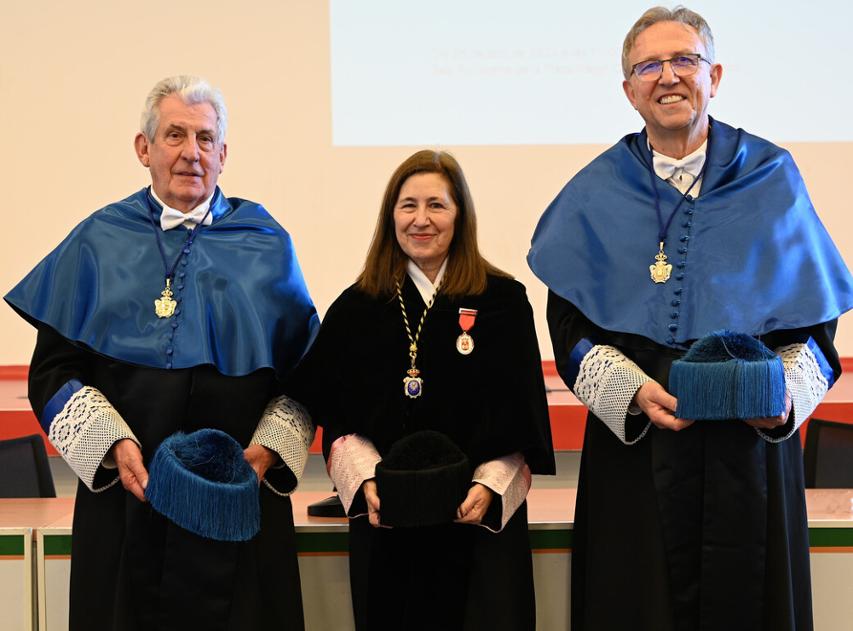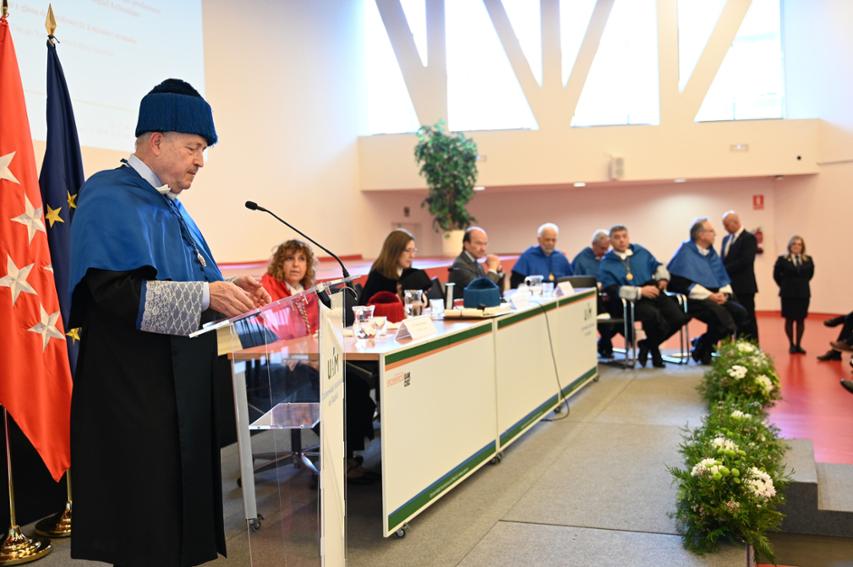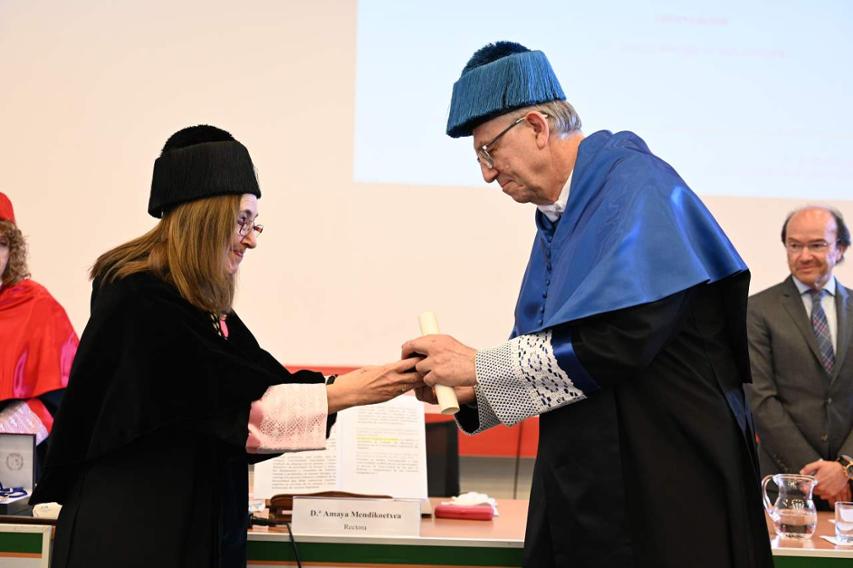A great celebration of Science at the UAM, where two professors were conferred honorary doctorates

“One of the most relevant Spanish scientists of the last 30 years”. This is how Fernando Flores, Professor emeritus of the Department of Theoretical Physics of Condensed Matter, defined Professor Pedro Miguel Echenique, to whom he delivered the laudatio of the honorary doctorate. He also highlighted Echenique's role in creating a research groups of excellence backed by scientific work of international prestige and the impetus for the creation of the University of the Basque Country-CSIC Joint Center, the first nanotechnology centre in the Basque Country, CIC Nanogune, and the Donostia International Physics Center (DIPC):
Although at the beginning of a career, the essential thing is to contribute something new, over the years one learns to value, understand, and appreciate the work of others. Science is a collective work. We are part of a community that transcends nationality, creed, age, and social origin. A culture whose shared criteria of rigour, integrity and beauty help us to follow the right path. Today the exponential development of scientific research makes renaissance man practically impossible, we must aspire and build renaissance teams”, concluded Dr. Pedro Miguel Echenique.
Professor Eugenio Coronado was noted for his leading contributions in Europe in the field of Molecular Magnetism, Molecular Spintronics and Quantum Computing, as well as pioneering initiatives such as the organisation of the National Schools of Molecular Materials in 1992.
The laurate said one of the reasons he chose to become a scientist "is because science has no borders and does not depend on nationalities, nationalisms or languages. In fact, science is the only truly global human activity," he began. Quoting British researcher Peter Day, he confessed having devoted a large part of his time to "scientific tourism", reminding us that "Science is not just experiments, models and theories, but that it lives through the people, places, landscapes and times in which it develops".
The keys to achieving excellent groups and institutions

In the Professor Pedro Miguel Echenique's opinion, the keys to “achieving excellent groups and institutions” are:
- selecting exceptional people,
- giving them intellectual freedom,
- the freedom to fail,
- showing genuine interest in each of them,
- giving credit to those who deserve it, from the beginning of the university career,
- providing them with the appropriate means with the most advanced equipment,
- fostering trust and mutual cooperation,
- facilitating the exchange of ideas, both in coffee and in seminars.
The laureate's cap, the university ring, the white gloves and the Book of Science where the symbols which accompanied the doctor titles of the two professors. Along with receiving the medals, they became part of the College of Doctors of the Autonomous University of Madrid.
Creativity - common origin for both Science and Art

There are words that remind us of the existing specialisation of scientific knowledge, to which only a few have access. But Science can no longer be something of a few, indisputable, distant, and safe. More than ever, it is a matter for everyone, because scientific knowledge is of vital importance to solve the problems facing humanity. Although there is a barrier that still exists between laboratories and the world, Science and Art have the same origin, human creativity. They are driven by the same engine - curiosity, and with the same purpose - the need to understand", said the UAM's rector, Amaya Mendikoetxea.
The title of doctor honoris causa is the highest academic distinction of the Universidad Autónoma de Madrid and is awarded to people of extraordinary merit of an academic, scientific, cultural, technical, or humanistic nature, of recognised national or international prestige and who contribute notably to the development and promotion of the values of the UAM or maintain a close link with this institution.
